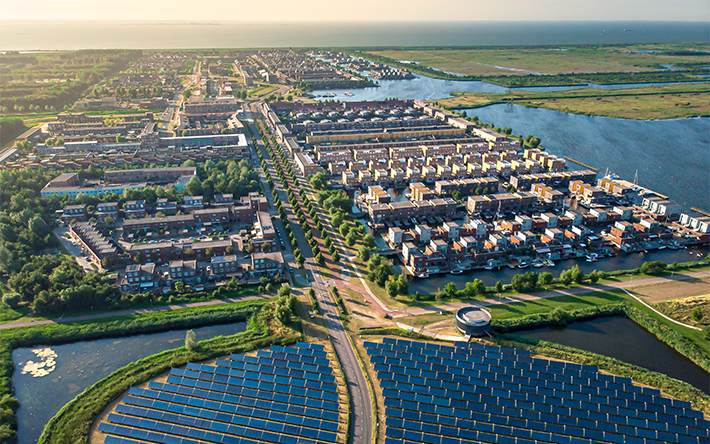
Προώθηση κοινωνικής συνοχής και σύγκλισης
Η προώθηση της κοινωνικής συνοχής και σύγκλισης είναι μία από τις έξι βασικές δραστηριότητες του προγράμματος εργασίας του Eurofound για την περίοδο 2021-2024. Το Eurofound θα συνεχίσει να λειτουργεί ως κέντρο εξειδίκευσης για την παρακολούθηση και την ανάλυση των βασικών τάσεων και των καθοριστικών παραγόντων για την επίτευξη ανοδικής σύγκλισης ως προς τις συνθήκες διαβίωσης και εργασίας και την ενδυνάμωση της οικονομικής και κοινωνικής συνοχής στην ΕΕ. Η πανδημία COVID-19 αποτελεί μια πρωτοφανή πρόκληση για την οικονομική και κοινωνική ανθεκτικότητα της ΕΕ, η οποία αναδεικνύει τον ευάλωτο χαρακτήρα οποιασδήποτε προόδου έχει ήδη σημειωθεί σε σχέση με τα μοντέλα σύγκλισης.
Την προσεχή τετραετία, το Eurofound θα σκιαγραφήσει σε μεγάλο βαθμό τις προκλήσεις και τις προοπτικές στον τομέα της κοινωνικής συνοχής και σύγκλισης στην ΕΕ, συμβάλλοντας με αυτόν τον τρόπο στη διασφάλιση της ανθεκτικότητας των ευρωπαϊκών οικονομιών και κοινωνιών σε μελλοντικούς κλονισμούς. Το ίδιο θα επεκτείνει το έργο του σε σχέση με τα προηγούμενα χρόνια και θα ασχοληθεί με το ζήτημα της ανοδικής σύγκλισης, δίνοντας ιδιαίτερη έμφαση στην πιθανή δημιουργία νέων ανισοτήτων μεταξύ των πολιτών και στους τρόπους αντιμετώπισης των αυξανόμενων προκλήσεων για την κοινωνική συνοχή που έχει προκαλέσει η κρίση. Ο Οργανισμός θα υποβάλλει τακτικά εκθέσεις σχετικά με τις τάσεις της ανοδικής σύγκλισης ως προς την κοινωνικοοικονομική διάσταση, καθώς και ως προς όλες τις διαστάσεις που περιγράφονται στον ευρωπαϊκό πυλώνα κοινωνικών δικαιωμάτων σε επίπεδο κράτους μέλους και περιφέρειας, ενώ παράλληλα θα προβαίνει σε συγκρίσεις της ΕΕ με άλλες αναπτυγμένες χώρες.
Κατά τη διερεύνηση των παραγόντων που συμβάλλουν στη διασφάλιση της οικονομικής και κοινωνικής σύγκλισης καθώς και του αντίκτυπού της, το Eurofound θα εστιάσει σε ένα ευρύ φάσμα παραγόντων όπως οι κοινωνικές επενδύσεις, η κινητικότητα, τα θεσμικά πλαίσια, η ρύθμιση, τα συστήματα πρόνοιας , η θεσμική ποιότητα και οι δημόσιες υπηρεσίες , ο κοινωνικός διάλογος και οι διαρθρωτικές μεταρρυθμίσεις. Κατά την έρευνά του, θα εξετάσει την αποτελεσματικότητα της ανταπόκρισης της ΕΕ στην πανδημία για την οικονομική και κοινωνική σύγκλιση. Επιπλέον, θα εξετάσει την κατάσταση στη ζώνη του ευρώ, εστιάζοντας και στον αντίκτυπο των διεργασιών επαγγελματικών σχέσεων στη σύγκλιση.
Το Eurofound θα διερευνήσει τις τάσεις και τους παράγοντες της κοινωνικής συνοχής εντός της Ευρωπαϊκής Ένωσης, εξετάζοντας ιδίως με ποιους τρόπους η πανδημία COVID-19 έχει οξύνει τις ήδη υπάρχουσες ανισότητες ή έχει δημιουργήσει νέες ανισότητες που επηρεάζουν ευρύτερα την κοινωνία ή συγκεκριμένες ομάδες πολιτών. Στο πλαίσιο της ανάλυσής του, θα εστιάσει σε οικονομικές, κοινωνικές και υγειονομικές ανισότητες, τόσο όσον αφορά την αγορά εργασίας όσο και την πρόσβαση σε βασικά αγαθά και υπηρεσίες όπως η υγειονομική περίθαλψη , η στέγαση, η εκπαίδευση και κοινωνική προστασία , καθώς και την ποιότητα αυτών των αγαθών και υπηρεσιών. Θα μελετηθεί, επίσης, η σχέση που συνδέει τις ανισότητες με την εμπιστοσύνη στα θεσμικά όργανα και τη δυσαρέσκεια για αυτά. Άλλοι τομείς ενδιαφέροντος της έρευνας περιλαμβάνουν τη μετανάστευση , την ενσωμάτωση και τις κοινωνιακές εντάσεις.
Τα αποτελέσματα της έρευνας στο πλαίσιο αυτής της δραστηριότητας θα συνδράμουν το έργο των διαφόρων υπηρεσιών της Ευρωπαϊκής Επιτροπής και της Επιτροπής Απασχόλησης (ΕΑ), της Επιτροπής Κοινωνικής Προστασίας (ΕΚΠ), της Οικονομικής και Δημοσιονομικής Επιτροπής (ΟΔΕ), του Συμβουλίου και του Ευρωπαϊκού Κοινοβουλίου, μεταξύ άλλων σε σχέση με το ευρωπαϊκό εξάμηνο.
- Εικονογράφημα: Προώθηση της κοινωνικής συνοχής και της σύγκλισης στην ΕΕ
«Η κρίση της νόσου COVID-19 έχει επαναφέρει την έννοια της ανοδικής σύγκλισης στο επίκεντρο του πολιτικού διαλόγου... Η εν λόγω σύγκλιση είναι σημαντική για τη σταθερότητα της Ένωσης. Η αδυναμία τήρησης της υπόσχεσης περί επίτευξης της ανοδικής σύγκλισης ενδέχεται να υπονομεύσει τη λειτουργία της Ένωσης και να δημιουργήσει πολιτική δυσαρέσκεια για το σχέδιο της Ευρωπαϊκής Ένωσης».
Massimiliano Mascherini, επικεφαλής μονάδας κοινωνικών πολιτικών

























